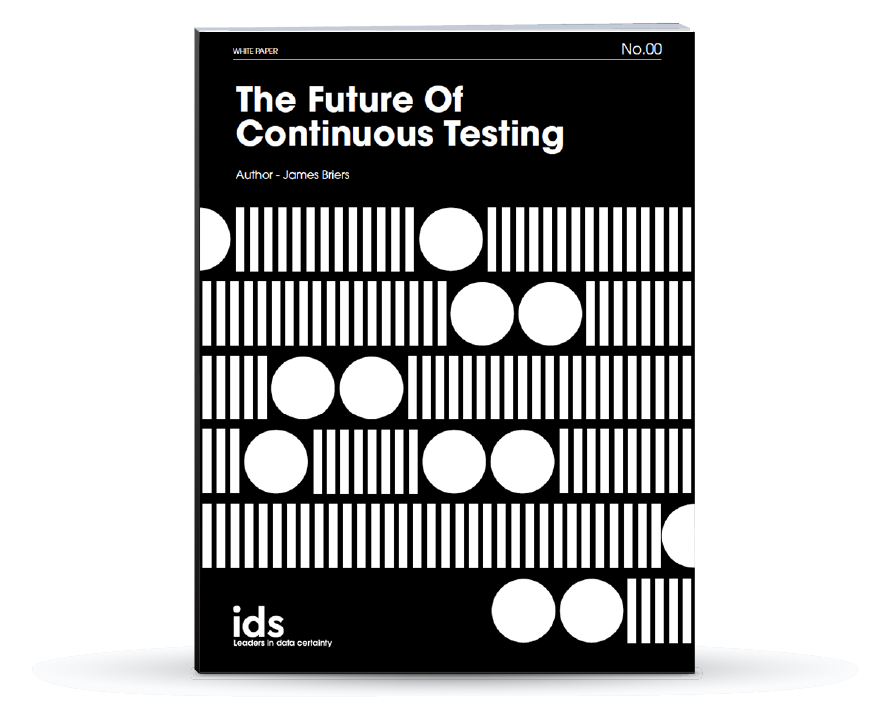Reassessing Data Quality Strategies in 2022
.jpg)
4 Ways your Organization Can Re-Assess Data Quality Strategies in 2022
2021 was a challenging year for businesses everywhere. The continuing challenge of the pandemic forcing economies and people to be locked down, often at short notice.
The unprecedented disruption to national and international markets and their data quality maturity meant many businesses have fought just to survive.
Those that not only survived but advanced are companies that have evolved their digitalisation and data quality management strategies to become more data-driven.
The difference-maker is in the empowerment of senior management teams to quickly adjust their operations based on accurate and accessible real-time data.
Businesses that endured a less successful 2021 are slowly accepting the need for radical company-wide changes. A competitive landscape means companies can't afford to ignore, endure or sweat their current IT assets.
The only way to remain competitive is to constantly innovate and adapt to new technologies and use them to overcome the competition.
The evolution towards being a data-driven business is often complicated by the rapid pace at which the new analytics use cases are being identified.
The environment is constantly changing for different types of business. This makes navigating change increasingly complex. Selecting and deploying the right data and analytics tools, is a daunting prospect, as there are costly consequences in prospect for any business that gets it wrong.
Transition to a Data-Centric
Business Strategy
Data-driven decision-making is one of the most important trends in business. However, it can be difficult for companies to implement this strategy owing to the cost and lack of internal resources.
Adopting a data-centric approach can be tricky with the rapid pace of development. With new technologies like artificial intelligence, big data analytics, and machine learning becoming commonplace, keeping pace with change is a challenge.
Businesses need to find a way to balance agility and innovation and make the decision to invest in people, technology, or both.
In order to stay ahead of competitors, organizations need to take a data-centric approach, incorporating data quality management into business processes.
This requires a multi-staged approach starting with the establishment of strategic goals and a plan to achieve them.
With objectives defined, and sponsorship from the senior management team established, it is the vital time for the data required to accomplish objectives to be identified.
The key to a successful data-centric approach is to focus on the quality of the data and not rely on the quantity.
It is vital to ensure that every employee understands how low data quality can impact the success of the business.
By adopting a culture of continuous learning and experimentation, businesses can ensure that the company’s culture remains open-minded and adaptable to monitor ongoing trends in the technology industry.
Establish your Organizational Structure
To ensure that data used for decision-making is accurate, it needs to be validated at every step of the process, 100% of the time.
Creating project teams, responsible for dealing with data quality issues is essential for organizations to benefit from data analytics and make better decisions.
The first step in this process is identifying the problem areas in an organization and establishing project teams which will be responsible for dealing with them.
It is then essential for employees to develop individual skills and gain formal qualifications in recognizing data quality issues. Goals and objectives around data quality should then be established with a clear scope and timeline, which makes it easier for them to deliver results in a timely manner.
What is Data Quality?
Data quality is not achieved in a single output, but an ongoing process that needs to be monitored and updated.
In delivering a sustainable DQM strategy, a key responsibility for teams, is to ensure a clear understanding of what is meant by data quality amongst team members.
Data quality is not just about data completeness and accuracy, but also timeliness, completeness, and reliability.
Achieving sustainable data quality requires a culture that values and respects accurate information, so it's important to start with developing a culture that values accuracy in all areas of an organization.
Settle Processes & Policies
Before starting out on such a radical strategy it makes sense to allocate time and budget to access expert support that will be needed at each stage of the process and avoid common pitfalls such as costly project overruns.
At times when data is pouring in from multiple sources, clearly defined DQM processes and policies are more crucial than ever. Data should be treated as an asset with value that needs protection through policies. These include understanding the security policy certificates to be in place, such as ISO9001 and ISO27001, to what extent processes should be automated, and who is responsible for handling or governing data.
These are all critical factors to treat data as the valuable asset it is.
With manual DQM processes infamously time-consuming process, modern analytics trends mean it now makes more sense to use some of the latest augmented data management tools capable of automating routine tasks such as data profiling, monitoring and repairing, like the iData toolkit.
The toolkit, along with IDS’ unique Kovenant™ methodology, has been developed from extensive experience working with leading business consultancies and SI’s for a wide range of enterprises.
To help implement a tailored data and analytics strategy, book time for a free, exploratory conversation with a data certainty specialist today.

Learn How Continuous Testing can Improve your Business
IDS' Chief Technical Officer, James Briers, sheds light on the solutions to approaching complex data testing projects with mechanical efficiency.


.jpg?width=1200&name=IDS_Website-Image21_(1200x628).jpg)
